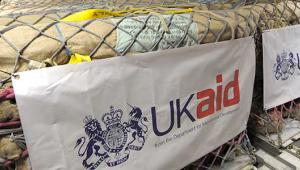In its latest report, the Independent Commission for Aid Impact (ICAI) acknowledges that the work the UK Department for International Development does with businesses at home and abroad is relevant to achieve a range of development objectives that benefit the poor.
But it says DFID needs to do more by ‘translating its high level ambition into detailed operational plans with a clear focus on poverty reduction’.
After reviewing 23 initiatives and visiting both Ghana and India for 10 days, ICAI issued the department with an amber-red rating for its Business In Development programme. This means the programme performs relatively poorly against effectiveness and value for money criteria and significant improvements need to be made.
‘Businesses are playing an increasing role in development. Collaboration between business and aid agencies has the potential to deliver major benefits for the poor and DFID’s growing portfolio of work with businesses recognises this important opportunity,’ the report says.
‘In some cases, however, we are not confident that DFID’s support is additional to what businesses would have done anyway, especially in the case of challenge funds. We found some examples of some grantees who were already implementing or had had plans to expand on relevant projects before being approached by DFID to apply for funding. There is little evidence to show that DFID engagement facilitated this self-funding through demonstration and suggests instead that funding was simply interchangeable with firms’ own funds.’
Graham Ward, ICAI chief commissioner, said DFID had stated its intention to work more with business and ‘there are great potential benefits for the poor from this collaboration’.
But he said the watchdog was concerned about how DFID would ‘translate these goals into practical actions without more strategic oversight of business engagement activities and without concrete targets’.
The watchdog is calling on DFID to reassess how it appraises, monitors and evaluates its business engagements and to ensure better linkages between centrally managed programmes and country offices for business in development.
Responding to the report, DFID said its close relationship with businesses was ‘delivering real results’, whether working with the London Stock Exchange to boost markets in Africa or partnering with Unilever to set up social enterprises.
‘This report comes a year into our ground-breaking new strategy and only reviews a small cross-section of our work. It would be wrong to rush to conclusions on projects that are intended to deliver over a five to ten year timeframe,’ a spokeswoman said.
‘Our strategic framework, omitted from the commission’s summary, has now seen all our country offices develop a detailed set of plans to support this work.’








